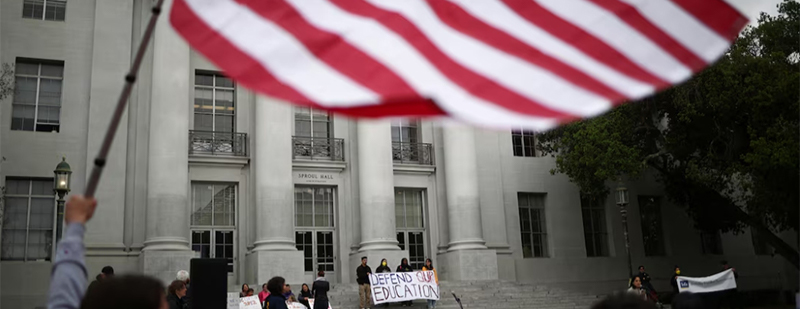-
周波:“极限竞争”距冲突仅一步之遥
ZHOU Bo: As the US focuses on ‘extreme competition’ with China, conflict is just a step away
The dust from the Afghan war has yet to settle but the fallout is clear. With the ending of the US global crusade on terrorism, the prelude to President Joe Biden’s “extreme competition” with China has begun. The question is: how long will it last?
If the 20-year war in Afghanistan is a “forever war” for the United States, then its competition with China could be described as “forever competition”, because it will surely last longer. Gone are the days when China could “hide its strength and bide its time”.
The second-largest economy in the world is simply too big to hide. And it is impossible for Beijing to bide its time when Washington takes it as its primary strategic competitor.
But in the economic field, the die is cast. At the end of last year, China’s economy was 70 per cent of America’s. It is widely assumed that, by around 2030, China will overtake the US to become the world’s largest economy in terms of gross domestic product.
According to Yale professor Paul Kennedy, this will be a situation that has not existed since the 1880s, when America’s economy overtook Britain’s. For the entire 20th century, the American economy was about two to four times larger than that of any other great power.
When China emerges as the world’s largest economy, as former Australian prime minister Kevin Rudd pointed out, it will be the first time since George III (1738-1820) that the world will have a non-English-speaking, non-democratic, non-Western state as its largest economy.
This will be a seismic change for Americans, who have been fed the myth since they were born that America is “exceptional” or “indispensable”. They will have to come to terms with common sense: nations rise and fall; Americans are like everyone else.
When the economy of an “authoritarian state” such as China surpasses that of the US, the influence of Western democracy will be looking at its nadir. According to Freedom House, democracy around the globe has been declining since 2006. Polls show that most Americans are dissatisfied with the state of the US.
Winston Churchill famously said that “democracy is the worst form of government except all those other forms that have been tried”. If this suggests that, in spite of its problems, democracy is still better than other forms of government, then the Capitol insurrection on January 6 showed how democracy can be virulent or even deadly violent.
It is hard to believe the Capitol building – the supreme seat of American democracy – would be violently attacked by a mob of supporters at the call of former president Donald Trump and false allegations of election fraud.
Until 2030, China-US competition will most certainly intensify in that the US will take it as the last chance to bring down a rising power. The recent “Aukus” agreement between the US, Britain and Australia allows the US to share its jealously guarded nuclear-powered submarine technology with Australia, which meant scrapping Australia’s multibillion-dollar submarine deal with France.
Such an unusual move, described by French Foreign Minister Jean-Yves Le Drian as a “stab in the back”, shows how the US could resort to desperate measures against a competitor at the cost of an important ally.
But while a few nuclear subs might indeed complicate decision-making in Beijing, they are not necessarily game-changers. For Australia, balancing is probably an art too delicate to learn. Historically, most of the wars that Australian soldiers fought are other people’s wars which they joined as junior partners.
This time, the Morrison government has obviously decided to risk taking America’s side in a military conflict with China. Given Australia’s inevitable reliance on US and British nuclear technologies in the decades to come, the Morrison government has left succeeding Australian governments hostage to its decision.
Even with some British and Australian help, time is not on America’s side. The Pentagon’s war games over Taiwan showed the US losing repeatedly to China. Of course, this is no reason for China to be complacent, but should a conflict occur in China’s periphery, the People’s Liberation Army (PLA) has all the advantages of being on home turf.
Today, America’s armed forces are considerably smaller and older than they were in the 1980s. The PLA is just the opposite. By 2019, the PLA Navy had about 350 ships, outnumbering the US Navy’s around 293 ships. Although quantity is not quality, it has a quality all its own.
Nothing speaks of a country’s security assessment more than its defence expenditure. For three decades, China’s military expenditure has stayed below 2 per cent of GDP. It speaks volumes about China’s self-confidence about its security challenges.
If China feels threatened to the extent that it has to increase its defence spending, the second-largest economy could easily afford to double the defence budget; but can the US double its military spending, which is already three times larger than China’s?
Biden said that US rivalry with China will take the form of “extreme competition” rather than conflict. But when competition becomes extreme, it is one step away from conflict. Contrary to the US, which emphasises competition, China has righteously called for cooperation. But it takes two to tango. A country cannot compete without strength; likewise, it can only cooperate with strength.
The pendulum of US foreign and defence policy traditionally swings between assertiveness and pullbacks. The question is when will an America in retrenchment swing back, or will it swing back at all? The US pull-out from Afghanistan was justified as a means for America to focus on competition with China. Only time will tell if this is a wise decision.
But if it is a boneheaded strategic blunder, then it is a monumental error more consequential than the Vietnam, Iraq and Afghan wars combined. It will doom America’s hegemonic status, held since the late 19th century, for good.
Zhou Bo is a senior fellow at the Centre for International Security and Strategy at Tsinghua University and a China Forum expert
本文系观察者网独家稿件,文章内容纯属作者个人观点,不代表平台观点,未经授权,不得转载,否则将追究法律责任。关注观察者网微信guanchacn,每日阅读趣味文章。
-
本文仅代表作者个人观点。
- 责任编辑: 小婷
-

美方称普京挑美女翻译分散特朗普注意力,俄方回应
2021-09-29 08:12 特朗普 -

朝鲜首次试射高超音速武器
2021-09-29 07:43 朝鲜现状 -

美国新增确诊109691例、死亡1937例
2021-09-29 07:29 新冠肺炎抗疫战 -

美中央司令部司令:我负全责
2021-09-29 07:06 阿富汗 -

谷歌删除RT在YouTube的2个频道,俄方:将处以罚款
2021-09-29 07:05 俄罗斯之声 -

“我没孟晚舟幸运,我的祖国没有给我强大支持”
2021-09-28 21:56 华为 -

“立陶宛在对华外交上没有长远计划”
2021-09-28 21:53 欧洲乱局 -

阿媒:塔利班将暂时执行查希尔·沙赫国王时期宪法
2021-09-28 21:22 阿富汗 -

捷克排除中俄参与核电站项目,外交部回应
2021-09-28 20:51 核电 -

孟晚舟回国后,中方代表在联大舌战加拿大外交官
2021-09-28 19:35 欢乐联合国 -

俄媒:在反华同盟里印度是多余的
2021-09-28 19:05 -

-

离美国政府关门还剩不到三天,共和党“违约”了
2021-09-28 18:17 美国政治 -

韩法院命令三菱重工出售资产赔偿二战劳工,日本急了
2021-09-28 18:00 日本 -

莫里森称中方无兴趣与澳直接对话,外交部回应
2021-09-28 17:26 -

外交部:孟晚舟事件得以妥善解决具有积极意义
2021-09-28 17:19 观察者头条 -

潜艇生意被英美“撬走”,法国转头卖了3艘护卫舰给希腊
2021-09-28 17:12 法国见闻 -

美媒妄称在华西方人或被用作人质,外交部:又在玩“狼来了”
2021-09-28 16:19 -

1977年纽约大停电引发了9个月后的婴儿潮?研究:停电对出生率无影响
2021-09-28 15:00 -

抗衡“一带一路”,拜登先从拉美下手了
2021-09-28 14:14 美国一梦
相关推荐 -
 俄军宣布完全收复库尔斯克,乌方否认 评论 50
俄军宣布完全收复库尔斯克,乌方否认 评论 50 “强度极大”!伊朗一港口突发爆炸,已致5死超500伤 评论 103
“强度极大”!伊朗一港口突发爆炸,已致5死超500伤 评论 103 大错特错!“给特朗普献计的人,压根不懂中国” 评论 154
大错特错!“给特朗普献计的人,压根不懂中国” 评论 154 比较见真章,美国车主心态崩了:怎么中国啥啥都有… 评论 119最新闻 Hot
比较见真章,美国车主心态崩了:怎么中国啥啥都有… 评论 119最新闻 Hot-

“哪来的谈判?特朗普在臆想,中国会给他狠狠上一课”
-

俄军宣布完全收复库尔斯克,乌方否认
-

CIA副局长之子在俄乌冲突中死亡,“生前为俄方战斗”
-

“强度极大”!伊朗一港口突发爆炸,已致5死超500伤
-

罗马教皇方济各葬礼举行,英法美等多国领导人出席
-

大错特错!“给特朗普献计的人,压根不懂中国”
-

比较见真章,美国车主心态崩了:怎么中国啥啥都有…
-

特朗普称“克里米亚归俄罗斯”,泽连斯基回应
-

“美国百年优势,特朗普百日玩完,中国要赶上了”
-

领英创始人:若欧洲这么看中国,美国就惨了
-

“特朗普虚晃一招,中国没上钩”
-

日本:中国不买,我们想买美国玉米
-

特朗普:我开玩笑的
-

爱泼斯坦案关键证人自杀,曾称遭英王子性侵
-

“不跟中国做生意,美国货架要空”
-
Copyright © 2014-2024 观察者 All rights reserved。
沪ICP备10213822号-2 互联网新闻信息服务许可证:31220170001
网登网视备(沪)02020000041-1号 互联网宗教信息服务许可证:沪(2024)0000009
广播电视节目制作经营许可证:(沪)字第03952号
增值电信业务经营许可证:沪B2-20210968 违法及不良信息举报电话:021-62376571
![]() 沪公网安备 31010502000027号
沪公网安备 31010502000027号
![]() 中国互联网举报中心
中国互联网举报中心
 上海市互联网违法与不良信息举报中心
上海市互联网违法与不良信息举报中心

 观察员
观察员


